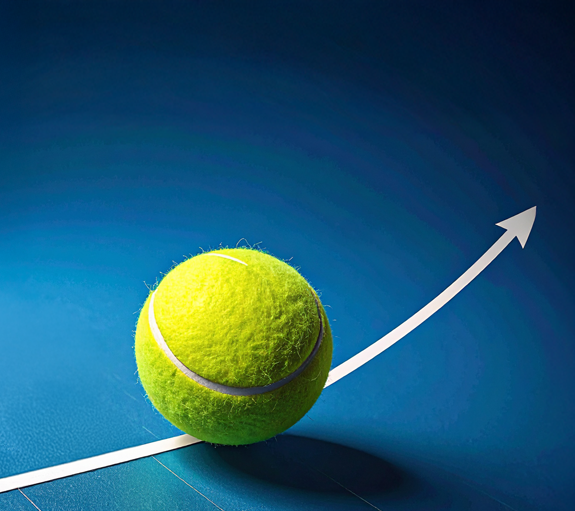
What can sport teach us about investing?
What can sport teach us about investing?
I love Summer in Europe—perfect weather, bustling tourists, and a calendar packed with spectacular sporting events. Once again this year we have the classics: the recently finished Roland Garros tennis, Wimbledon, the Tour de France, the Women’s Football World Cup, and something I’m especially excited about as an avid golfer- ‘The Open’ Championship at Royal Portrush in Northern Ireland.
Elite athletes inspire us in many ways. Their resilience, grit, determination and focus offer broader life lessons, which could also be applied to investing. But there is one further quality they exemplify that matters the most—the ability to take the long view.
Tennis and the stock market - more alike than you think
Let’s start with Roger Federer, arguably the greatest tennis player of all time. With over 100 titles and 20 Grand Slam wins, you'd expect him to have been almost invincible during his long career. But his stats tell a different story.
At a recent Dartmouth College graduation speech, Roger dropped a surprising fact—throughout his career, he won only 54% of his points, yet he managed to win 80% of his matches.
At first, that seems contradictory. How does someone lose almost half the points they play but still dominate? The answer is simple: he stays in the game. He doesn’t let individual lost points shake his confidence. He keeps playing, adjusts his strategy and, over time, he wins.
Investing works in the same way. A study we ran looking at daily market returns as far back as 1927, shows the US stock market had positive daily returns 54% of the time—coincidentally the same percentage of points that Roger wins. But zoom out and take a long term approach. The market is up 70% of the time on an annual basis, and if you hold stocks for at least three years—what I would call a minimum sensible horizon—that number climbs to 80%, exactly matching Roger’s match-winning percentage.
Michael Jordan - embracing failure to win
If tennis isn’t your thing, let’s look at basketball. More specifically, let’s look at Michael Jordan, another of the greatest athletes of all time.
Jordan’s career wasn’t defined by perfection—it was built on resilience. He famously said:
“I’ve missed more than 9,000 shots in my career. I’ve lost almost 300 games. 26 times I’ve been trusted to take the game-winning shot and missed. I’ve failed over and over and over again in my life. And that is why I succeed.”
Despite these apparent failures, Jordan won 706 games out of 1,072 total in his career, giving him a win percentage of 66%. He won six NBA championships, five MVP awards, and became the most dominant player of his era. His ability to keep shooting, keep playing, and keep believing is what made him great.
Investors often make the mistake of reacting to failures, selling at a loss instead of sticking to their strategy. Just imagine if Jordan had stopped shooting after missing a few game-winning shots. He certainly wouldn’t have become the legend he is today.
The lesson: staying in the game
Roger Federer doesn’t quit when he loses a point. Michael Jordan doesn’t stop shooting when he misses. And smart investors shouldn’t sell at the first sign of market volatility.
Success, whether in sports or investing, comes from staying the course, focusing on the long term, and trusting that persistence pays off. In the case of both Roger Federer & Michael Jordan, their short term statistics might make for surprising reading, but the long term result is all they will be remembered for.